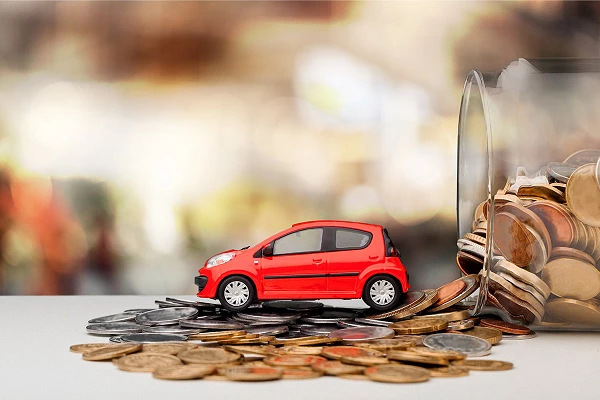
Partner Article
Is Getting a Car on Finance a Better Choice?
When it comes to buying a car, one of the biggest decisions you’ll face is how to finance it. While some people prefer to pay cash for their cars, others choose to finance them. Financing a car means borrowing money from a lender to pay for it and then paying back the lender over time with interest.
Whether or not getting a car on finance is a better choice depends on a variety of factors, including your financial situation, your personal preferences and the terms of the financing agreement you’re considering.
One potential advantage of financing a car is that it allows you to spread out the cost of the car over time. This can make it easier to afford the car, as you won’t have to come up with a large sum of money all at once. Instead, you can make smaller monthly payments over the course of several years.
However, financing a car also means that you’ll have to pay interest on the loan. The interest rate you’ll pay will depend on a variety of factors, including your credit score, the length of the loan and the lender you’re working with. In general, the higher your credit score, the lower your interest rate will be.
Another potential advantage of financing a car is that it allows you to get a more expensive car than you might be able to afford if you were paying cash. This can be especially helpful if you need a reliable car for work or other important activities, but don’t have the cash on hand to buy one outright.
However, financing a car also means that you’ll be making payments for a longer period of time. This can be a disadvantage if you’re the type of person who likes to own your car outright and not have any debt hanging over your head.
One potential downside of financing a car is that you’ll be required to have comprehensive car insurance. This type of insurance is more expensive than basic liability insurance, which is all that’s required if you own your car outright. However, comprehensive insurance can provide more protection in the event of an accident or other damage to your car.
Another potential disadvantage of financing a car is that you’ll be required to make a down payment. The size of the down payment will depend on the lender you’re working with, but it’s usually a percentage of the total cost of the car. This can be a disadvantage if you don’t have a lot of cash on hand, as it will increase the upfront cost of buying a car.
In addition, if you choose to finance a car, you’ll be responsible for making your monthly payments on time. If you miss a payment or make a late payment, you could be subject to fees or penalties and your credit score could be negatively impacted. This can be a disadvantage if you’re not confident in your ability to make your payments on time.
Ultimately, whether or not getting a car on finance is a better choice depends on your personal circumstances. If you have good credit, can afford to make the monthly payments and are comfortable with the idea of having a car payment for several years, financing a car could be a good option for you. On the other hand, if you prefer to own your car outright and don’t want to be tied to monthly payments, paying cash for a car might be a better choice.
Before making a decision, it’s important to shop around and compare financing options from different lenders. Look at the interest rates, loan terms and down payment requirements to find the option that works best for you. Additionally, it can be helpful to calculate the total cost of financing a car, including interest, fees and insurance to make sure you’re comfortable with the overall cost.
This was posted in Bdaily's Members' News section by iCONQUER Ltd .








 Setting a new standard in tackling city crime
Setting a new standard in tackling city crime
 Why B Corp must be more than window-dressing
Why B Corp must be more than window-dressing
 Why collaboration is key to a stronger economy
Why collaboration is key to a stronger economy
 Crisis comms lessons from the Astronomer Scandal
Crisis comms lessons from the Astronomer Scandal
 The real cost of tendering for construction SMEs
The real cost of tendering for construction SMEs
 A welcome step forward – but let’s keep pushing
A welcome step forward – but let’s keep pushing
 Industrial strategy 'can drive business forward'
Industrial strategy 'can drive business forward'
 Industrial strategy 'can be game-changer we need'
Industrial strategy 'can be game-changer we need'
 Driving skills forward with near £100,000 boost
Driving skills forward with near £100,000 boost
 What pension rule changes could mean for you
What pension rule changes could mean for you
 North East can't be an afterthought in AI future
North East can't be an afterthought in AI future
 Understanding the impact of the Procurement Act
Understanding the impact of the Procurement Act